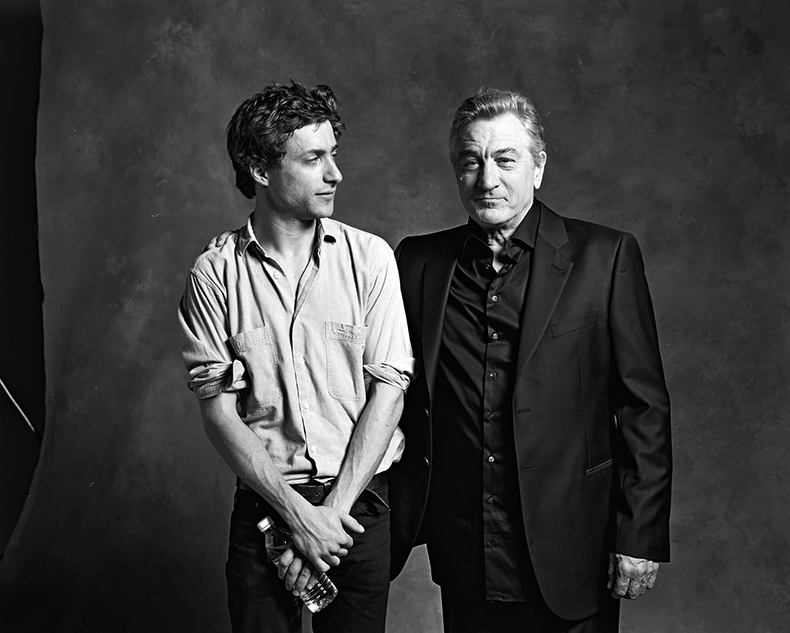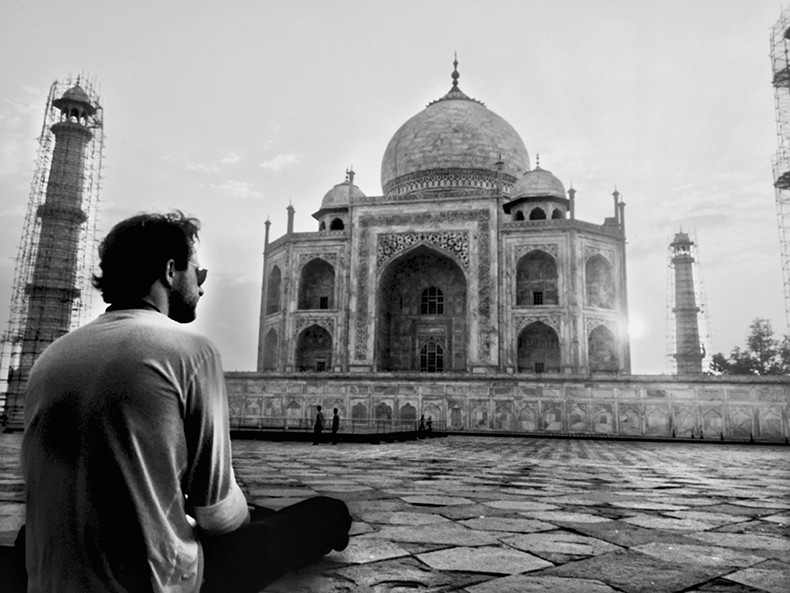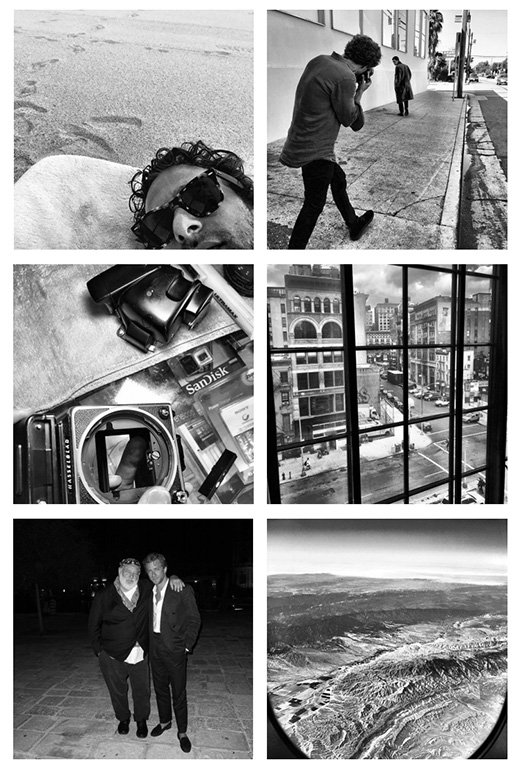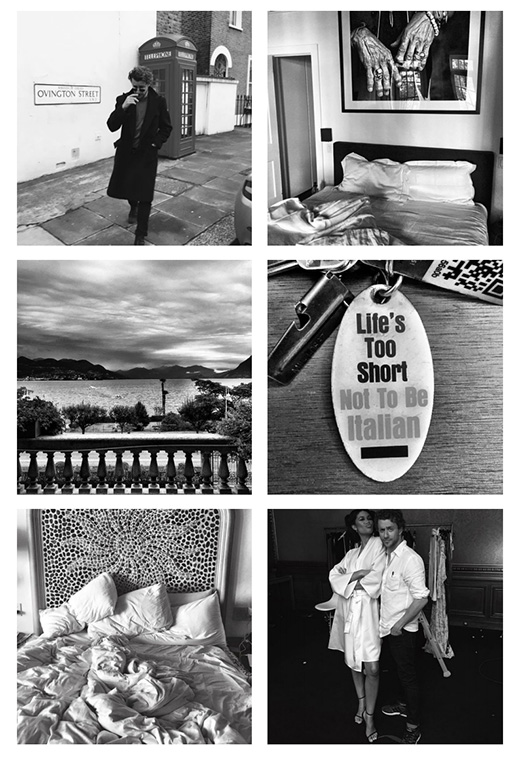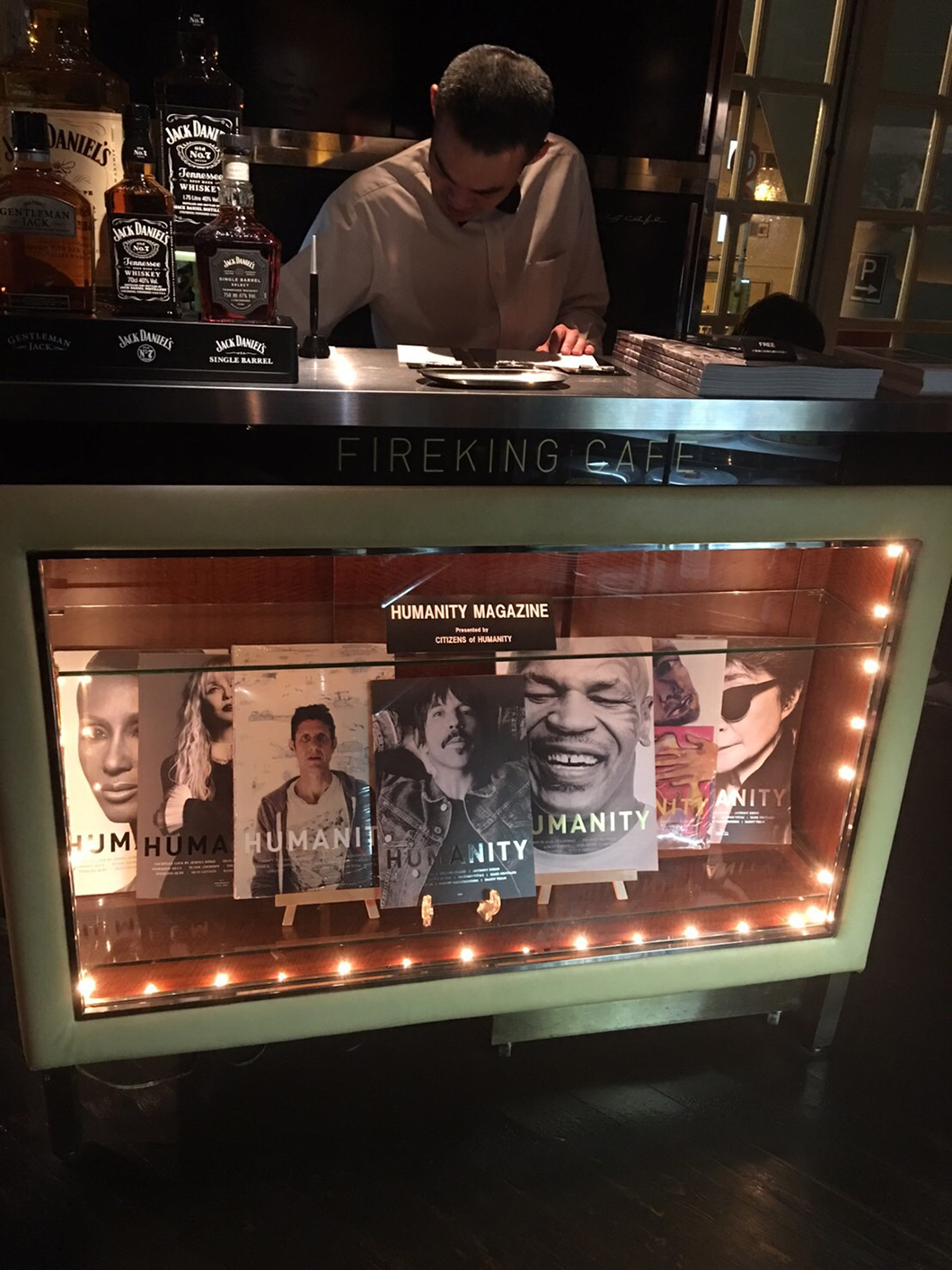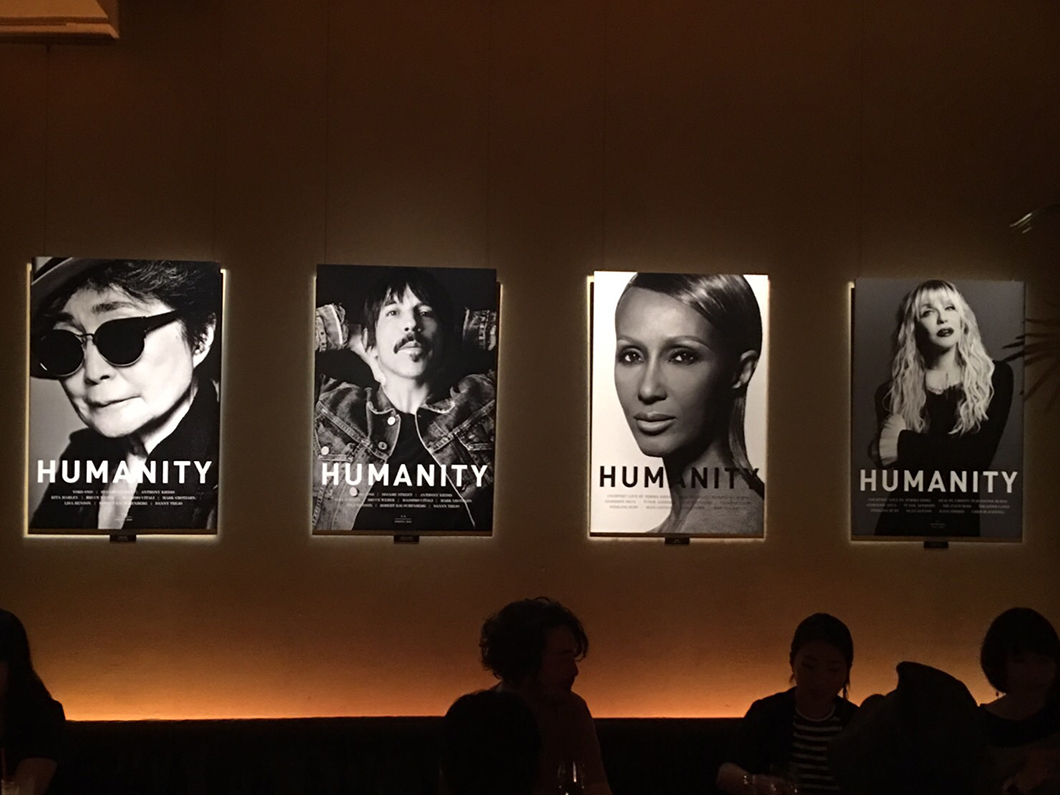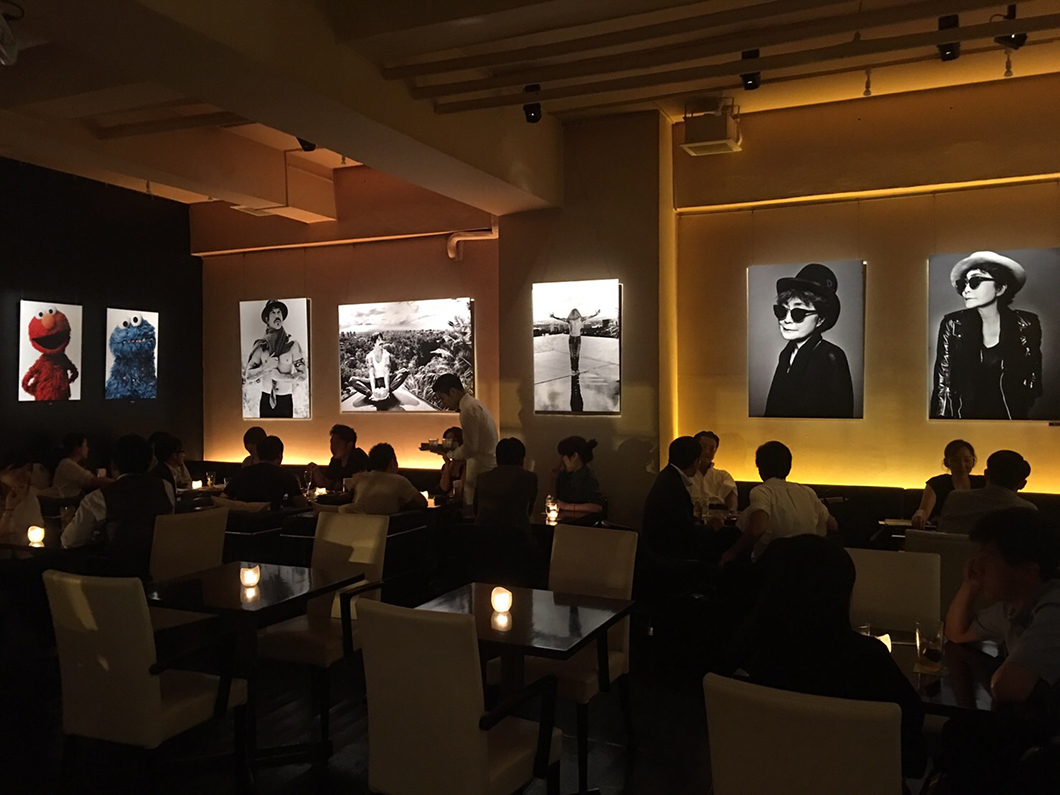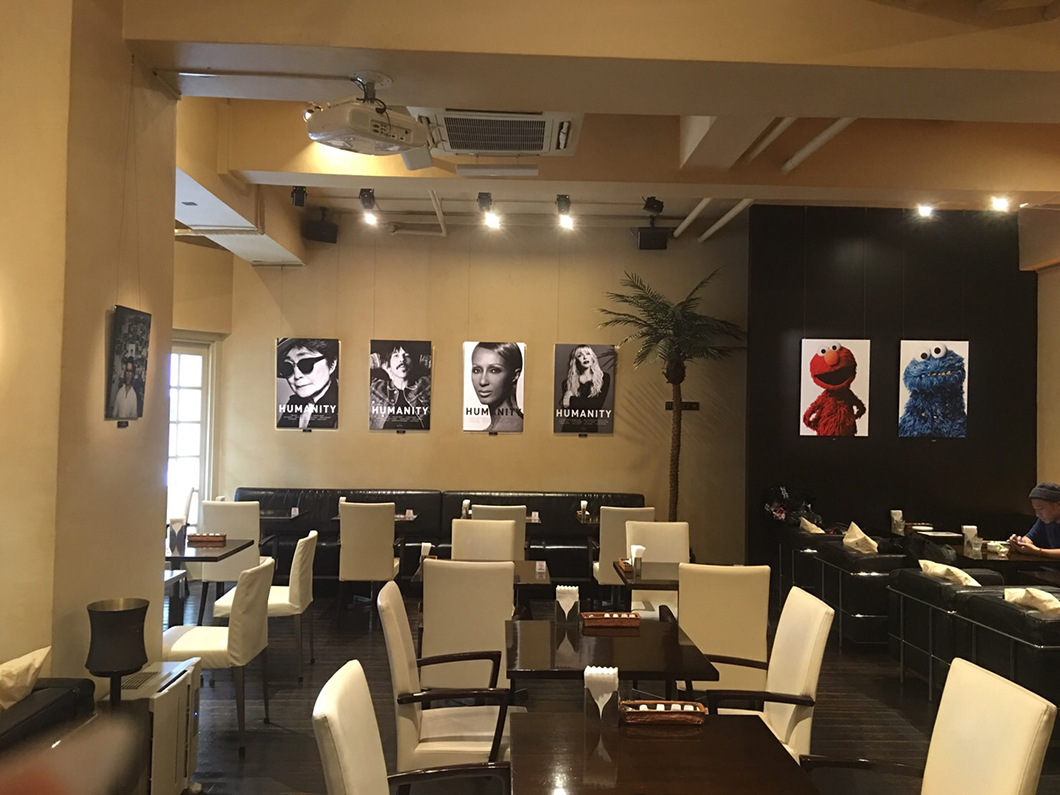JUSTIN O’SHEA: All right, Mr. Ulrich. Very excited to have you here.
LARS ULRICH: Thank you.
JO: First of all, I have to ask … 10th Metallica album is due this year?
LU: Yes, it is.
JO: Can you give us some insight about how it’s going to be, what it’s going to sound like?
LU: I don’t know if I have that kind of perspective yet, but I can tell you that it’s coming. Hopefully it’ll be out in the fall, and it definitely sounds like Metallica. It’s probably a little less frenetic than the last record. The last one Rick Rubin really encouraged us to for the first time be inspired by our past. It was the first time we sort of looked in the rearview mirror. This time around it’s a little bit of a different thing. We’re not working with Rick, we’re working with the engineer from the last record, who’s producing, Greg Fidelman. So there’s some of the same production elements at play, but we’re expanding a little bit on the sonics. It’s probably a bit more of a diverse record than the last one. It’s exciting, but I don’t have quite the perspective yet.
JO: Death Magnetic came out in 2008, so the gap between then and now is the longest in the band’s history. Has that hiatus given you a different perspective about how you approached this album? Has it been helpful to take a break?
LU: It’s funny you say that because when I think of the last six or eight years, the word “hiatus” is not that applicable in my view of it. Metallica’s busier than Metallica’s ever been. But we also have a different set of balances now in our lives, which is vital to keeping the band healthy. We prioritize our families and our kids. When we tour, we tour in two-week increments and we go home every two weeks. We found a new model for us, but we play probably two to three dozen gigs a year even in off years just to kind of keep the momentum going and keep ourselves connected and invested in the band.
I think what’s happened is our families and our domestic responsibilities are so important to us now, so we just have a new model. We’re sort of constantly doing something but never to the point of the needle going in the red, but Metallica really hasn’t sort of shut down since around 2005, and it’s a model that works for us. We never work at 110 percent to the point where we drive ourselves nuts, but are sort of constantly working at two-thirds, you know—when we make the record we’re writing and we’re recording, but we’re doing it incrementally. There’s always stuff going on. It’s the way we like it. It keeps us engaged.
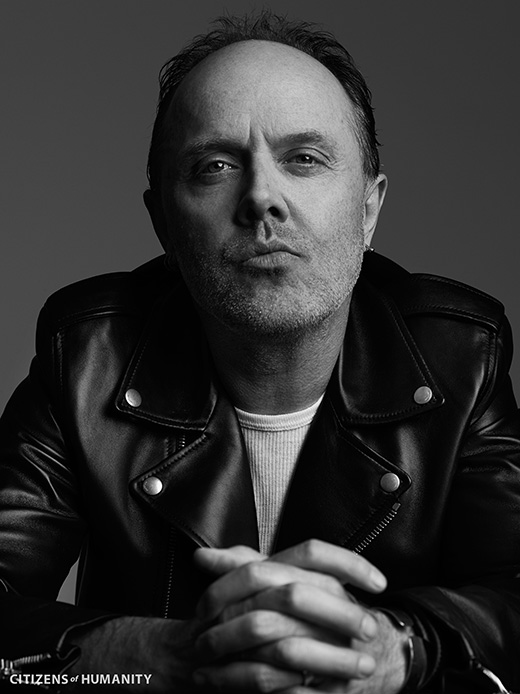
JO: The band’s been together for 35 years now. From when you started to now, have the dynamics of the band and members changed much?
LU: It’s been surprisingly good. A few bumps in the road here and there, you know, which was sort of 2001, 2002. That also was documented for that movie [Some Kind of Monster], so that’s been well talked about. But compared to a lot of our peers, it’s gone surprisingly well.
When we started the band I was literally 17, James was 18, and that’s young. We were green and full of spunk and ready to go. You never slow down long enough to check in with anybody or say “How’s everybody doing?” There’s such a gang mentality. I mean you just do everything together. Play together, live together, travel together, sleep together. You’re constantly partying. You’re just glued to each other for those years.
And then in our case we were fortunate enough to get a little success, and all of a sudden your manager sits there and goes, “You have enough money to buy a house,” so you buy a house. I remember for a couple of years I’d go to the furniture store and I’d like a couch and then I found myself going, “I wonder what James would think of that couch?” There’s sort of like a weird severing of the limbs—all of a sudden you’re sitting there like, “Fuck, I’m actually doing this shit on my own?” And that was a little bit of a weird transition. You’re just so attached to each other for those few years, but we managed that well enough. You can’t do 35 years without having time periods in your life where it all goes a little astray, but nobody’s lost the plot, nobody’s gone off the deep end, nobody went missing.
We always cared enough about the collective to prioritize the group more than our individual needs. And probably more important is that the way it all lined up, we all ended up having kids around the same time; between the four of us we have 10 kids. And especially with James, we had our first kid the same summer, so that gave us this whole other thing to kind of share together. I have three kids, he’s got three kids. It kind of happened at the same time, and it’s kind of expanded our relationship because it’s given us so much more to share.
JO: Would you say you’re the most vocal member of the band? You’re quoted probably the most of any of the band members.
LU: It’s probably by default more than anything, especially in the beginning. I don’t come from a particularly turbulent childhood. I don’t come from a broken home. My dad was a tennis player, a musician, a critic, and my mom was fairly normal. You know, I mean there’s not much to rebel against. I grew up around jazz musicians and sort of bohemian Western European culture, so I was always fairly comfortable with myself, fairly comfortable being around other people.
When James and I met each other, he’d had a pretty rough couple of years. His mom had just passed and he was not super comfortable with his surroundings, so when the two of us were together, it was fine, but when the two of us were in a room full of other people, I was kind of the more outwardly one and I ended up doing most of the talking. It wasn’t part of a plan; I just ended up doing the talking because he didn’t say anything. So when people asked us a question, I was like, “OK, well I guess I’m going to take this one.”
I was kind of the practical one. I mean he’s so insanely talented, and musical, and all this type of stuff, but I was the one that sat and copied the tapes and went to the post office and sent them out to people. I was the one that went to the print shop and copied our bio … whatever it was. So I was the one that ended up later speaking to the managers and speaking to the lawyers and kind of spreading the word, whatever the word was. But it’s always been kind of a group manifest. I guess by default really, I was the one who ended up doing most of the talking.
JO: You grew up in Copenhagen—what was it like growing up there?
LU: Well, I was born in 1963, so I grew up in Copenhagen in the ’60s and ’70s. Denmark is a small country, 5 million people, and most of them know each other very well. There was lots of music around. In my family there was music and actors. It was a very culturally rich kind of childhood. Very safe, insulated, comfortable upbringing. I played tennis, and music was kind of the escape from tennis. Music was kind of my fun; tennis was the serious thing. I was going to be a tennis player. But I started going to concerts when I was really young. I went to see Deep Purple when I was 9 years old, and the subsequent year I saw Slade and Sweet and Status Quo and Uriah Heep—and Deep Purple again. Kiss, you know—all these bands that would come through Denmark in the late ’70s. And then in 1980 I moved with my mom and dad to Newport Beach in Southern California to take this tennis thing to the next level.
JO: I’m just imagining you in little white shorts and polo.
LU: I had the white Sergio Tacchini with the red stripes. In Denmark I was considered a competitive tennis player in my age group, and when I came to Southern California, I wasn’t even one of the best tennis players in Newport Beach. I didn’t even make the high school tennis team, and that was really kind of a mindfuck. But it wasn’t a hard transition at 16 to jump into music full on. And I did that literally within two months. I was playing drums full-time and looking for people to start a band with.
JO: The band started in L.A. Did L.A. influence the sound of the band? You know, a lot of people like to regionalize a certain sound with a city. Was that something specific to do with L.A.?
LU: No, I would say it was probably more the opposite. I felt like I was in the wrong place at the right time. Everything that I was really into in the ’80 to ’82 period, all my attention was focused on England, the music that was coming out of England at the time: Motörhead, Iron Maiden, bands like Diamond Head, Saxon, Tygers of Pan Tang. All these bands that were sort of part of what was called the New Wave of British Heavy Metal, that was really what sort of inspired me to form a band. It was like hard rock but with a punk attitude, with punk aesthetics. And there was none of that going on in L.A. in 1980, ’81, ’82, not in the circles I was in. Most of that was hair metal and the Mötley Crües of the world—no disrespect. They were kind of ruling the roost. We were misfits, outcasts; we didn’t belong. We would play shows with some of these bands and people would look at us like, “Who the fuck are these guys and what are they doing here?” We would show up in our T-shirts and our jeans and our leather jackets and play kind of dirty, hard-rock, English-sounding stuff, and it didn’t really fit into the L.A. theme.
JO: Do you think that over the course of the 35 years the band has still kept that “fuck you” attitude?
LU: I’d like to think so, as much as it’s possible to keep that attitude when you sort of become successful. You know, success affords you freedoms—creative freedoms, financial freedoms, so on and so forth, so you can’t deny that element of it. I’m 52 sitting here. It’s been 35 years, so “fuck you” at 52 is a different “fuck you” at 18, or 25, or 35, or 45. So there’re different interpretations of the “fuck you” attitude as you go along. But I think that generally the very basic attitudes of why this band started are still as alive as you could expect it to be in a group of 51-, 52-year-old men, man-boys. It’s still hard for me to call myself a man, but I just did, so there you go.
JO: How about staying relevant but at the same time maintaining authenticity?
LU: We try to find the right balances, and we have people around us that help keep some of this in check, but I also feel like we’re incredibly impulsive and we still just throw ourselves into all these types of things. I don’t sit and overanalyze it. It’s like, “HUMANITY Magazine, they want to interview you, and Justin’s going to do it.” “Sounds great.” I don’t sit there with like 12 advisors and go, “Should I do this? Should I do that?” It’s just like, “That sounds like a fun afternoon in San Francisco.”
We kind of just throw ourselves into these things—we make a movie, we make a record with Lou Reed, we become record-store ambassadors, we play some shows, we write some songs. We do all of it, and we kind of just go about doing that in our own carefree little way and we don’t overthink it. There’s no master plan.
JO: When you look at the music industry now, obviously it’s changed a lot in the last 35 years. Do you feel that it’s lost a little bit of the vibrance?
LU: Obviously there are things going on in music that are interesting but for me, the type of things that I’m into creatively, like I actually spend more time in the art world, in the film world. I find that there’s still many things happening in both the film and the art world that seem to be kind of breaking down boundaries and doing things that are sort of original. It doesn’t mean I’m disrespecting music, I just feel that for the last 10 or 20 years it’s been the major source of creative inspiration for me.
Obviously the business is kind of at a little bit of a crossroads and has been for some time. The most exciting part of the music business or the music world at the moment is that for decades there was kind of a formula about how you were supposed to do things. So you make records this way, and you promote them this way, and you tour this way, and now it’s a little more like the Wild West.
And so we’re going to put a record out this year, and you could argue that there’s two creative processes now. There’s the creative process of making the record, writing the songs and getting all that done, and the creative process of figuring out what the fuck to do with this record and how you get it out to people. There’s no “one way.” You know, do you want to leak it on YouTube, do you want to give it away, do you want to sell it. Whichever version … there’s no right or wrong way, it’s only what works for you.
There’s no boundaries to any of it, and that’s kind of an exciting thing, a new thing. I mean you sit there and look at Kanye and you go it’s kind of weirdly interesting, the thing that he’s doing where he’s making his music available and then taking it down two weeks later and putting it back a month later in a newer version. That’s kind of crazy. It’s almost like a public work in progress. That’s kind of cool. I’m not saying that’s what we’re going to do, but I admire it.
JO: The Metallica legacy—is there anything left that you guys want to achieve? I mean you’ve basically achieved everything. You’re one of the most famous bands of all time. So is there anything left?
LU: I think it’s just staying together and keep doing it, and refusing to go away. We haven’t played Coachella yet, so put that on the list. I mean that’d be fun.
We played a show in India a few years ago, played some great shows for lots of kids from different Arabic countries, and seeing all of them together in front of a Metallica stage is beyond exciting. We’ve played in Malaysia, in Indonesia, and we penetrated China a few years ago. There’s new things happening that wasn’t possible five or 10 years ago.
The one that really works for us is just diversity. We’re in a place where we will play some stadiums and we’ll play some record stores and we’ll play a backyard barbecue, then we’ll go here and we’ll go over there and we’ll play the Antarctic, and we’ll write some songs and we’ll be in a movie and we’ll hang out with Lou Reed. It’s sort of all over the place, and that’s what’s really fun.
JO: And how important is giving back to the community—I know that you work with a health-care charity—and also giving back to the music community? Is this something very important to you guys?
LU: We do as much as we can. We’re sitting literally across the street from the Benioff Hospital. You know, Marc Benioff is a great man and has also become a friend. He is probably the most charitable man in the Greater Bay Area and leads a lot by example, and so being around him for the last five or 10 years has inspired us.
The hardest thing about these types of things is just finding the right balances between how vocal you are about it, because sometimes when you’re really vocal about it, there could be a fear of we’re just tooting our own horn. “Hey, look how cool we are, we do all this charitable stuff, and we should be patted on the back.” And then at the same time, the counterarguments that it’s good to do some of this in the public limelight because it hopefully will inspire other people to get their shit together and help out in the community as well.
JO: Well, Lars, you’re a great man. Thank you very much.
LU: Thank you. All right, I enjoyed talking to you.
JO: And my dad’s having a barbecue next weekend, so if you guys don’t mind dropping around to play, that would be great.
LU: Of course. We love backyard barbecues, especially on the weekends.
—
RETURN TO THE HOME PAGE
VISIT CITIZENSOFHUMANITY.COM


